

As the world anticipates the 2012 Summer Olympic Games in London, brands gear up for a unique opportunity to enhance their visibility and explore new marketing avenues. The Olympic Games, known for its global influence and intense competition, attract a diverse audience, making it an ideal platform for brand exposure. Brands, both global and Chinese, strategically sponsor the Olympics to bolster their brand awareness. This article delves into the reasons behind brands sponsoring the Olympics, highlighting distinctions in approach between global and Chinese brands. Explore insightful branding examples from industry leaders such as Coca-Cola, Yili, and P&G in the context of this monumental sporting event. Uncover the diverse branding strategies employed by these prominent brands as they seize the Olympic stage.
In exchange for financial, technical and product support, multinational corporations are granted specific marketing rights and access to Olympic intellectual property. The International Olympic Committee (IOC) is in charge of carefully supervising this process. Over 40% of the total IOC revenues come from the contributions of corporate partners and direct sponsors.
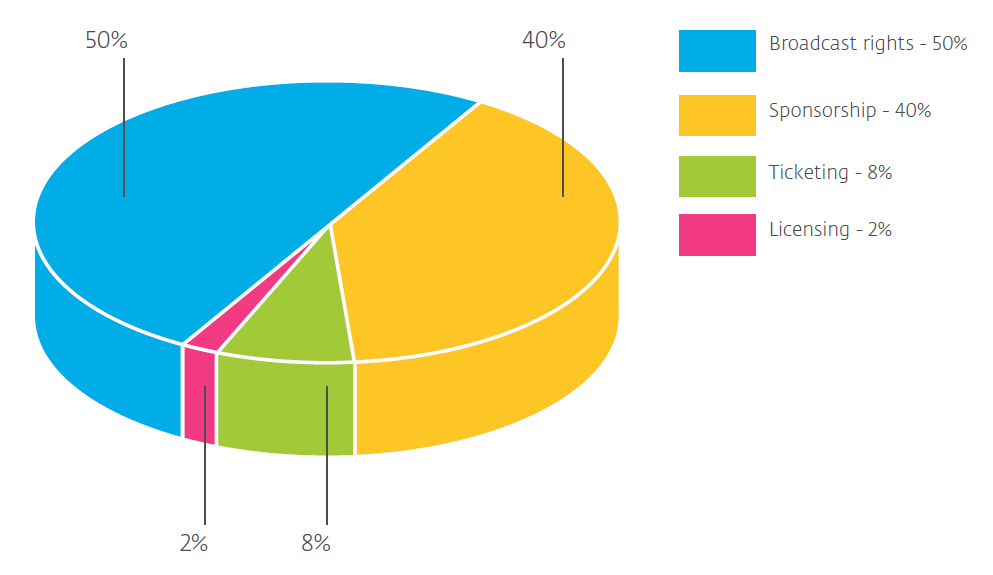
Figure 1: Estimated Olympic Revenue Sources Revenue in the Olympic Games is mostly generated through broadcasting and sponsorship programs.
Sponsorship programs can be generally categorized into different sections.
TOP Program
The Olympic Partner (TOP) members are granted the exclusive rights of worldwide marketing by the TOP program. This is true for both the summer and winter Olympics. The following chart shows the Worldwide Olympic Partners for the London 2012 Olympic Games. These games will mark the seventh generation of the TOP program (TOP VII family). Brands such as Coca-Cola, Panasonic and Visa have been members since the program was founded in 1986.
Other Sponsorships
Domestic sponsorship program: This entity is managed by the Organizing Committees of the Olympic Games (OCOG) and is under the direction of the IOC. However, brands that fall within the domestic sponsorship category can only be marketed within the country where the Olympic Games are being held.
Local Sponsorship program: Conversely, the National Olympic Committee (NOC) manages local sponsorship programs, which are known to support local athletic activities as well as national Olympic teams.
The prestige of the Olympic Games enables brands to partake in a wide array of branding and marketing activities. A sponsor of the Olympic Games enjoys exclusive rights to the event and retains maximum exposure and minimum competition.
Sponsorship of the Olympics can benefit in the following areas:
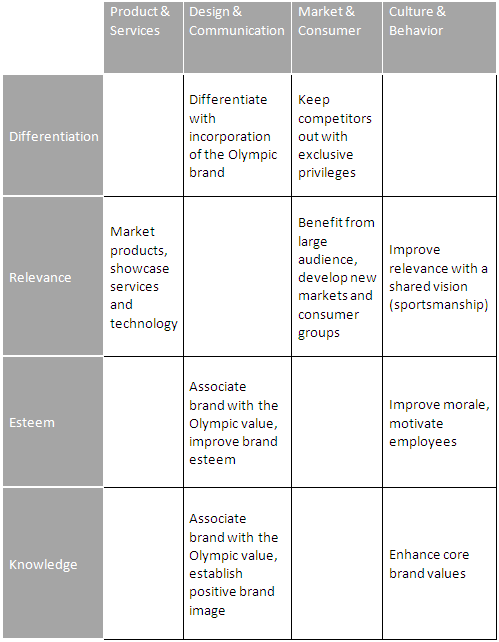
Many brands have been loyal partners of the Olympic Games for several decades. Brands such as Coca-Cola, McDonald’s, Visa, Dow, GE, Omega and P&G have all renewed their partnership with the IOC until 2020. The “Olympic” brand symbolizes the achievement for excellence; mature brands’ sponsorship will strengthen their brand equity on a long-term basis in terms of brand esteem and knowledge.
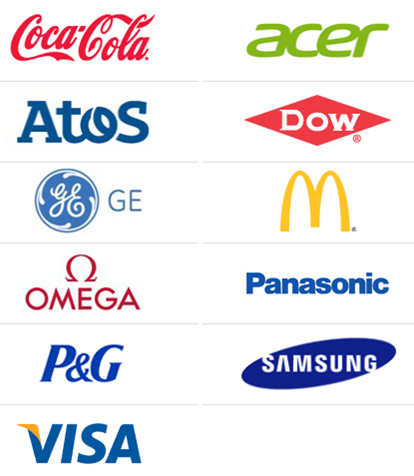
As one of the very first TOP members, Coca-Cola and the Olympic games have cultivated the same vision. For London 2012, Coca-Cola recently launched a new integrated marketing campaign themed “Move to the Beat”, inspiring teens to cultivate their passion for music.
Of course, the reasons behind sponsoring the Olympics go beyond that. Coca-Cola has been a sponsor since 1928, consumers are fully aware of the association between Coca-Cola and the Olympics. Terminating the relationship means opportunities for competitors, especially Pepsi.
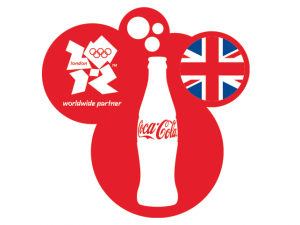
But of course, non-sponsor brands also want to leverage the Olympics to enhance themselves as well. To prevent any kind of potential ambush and guerrilla marketing, this year’s the Olympic committee has seriously tightened specific branding regulations. Spectators attending the Olympic venues will not be able to wear any type of attire that attempts to make an unofficial marketing statement.
Yili
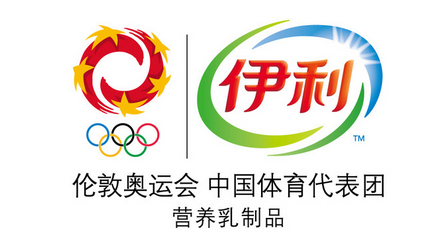
Yili was one of the main sponsors of the Summer Olympics in 2008 and has continued its involvement through London 2012 as a national team sponsor. This year, the brand has launched a campaign themed “Let’s Olympic Together”, which integrates print ads, online UGC platform and microfilm TVCs. With their recent partnership with Youku, Yili inspires people to share their own stories with the purpose of inspiring people’s active participation in sports activities and advocating the ‘Olympic spirit’. Yili’s campaign is endorsed by a number of Chinese athletes including Olympic gold medal winner Liu Xiang and French Open winner Li Na. On every Yili dairy product, the Olympic logo is visibly placed next to the Yili logo clearly showing their association. The tagline “London Olympic Chinese Team’s Exclusive Dedicated Dairy Products” is placed under the logos.
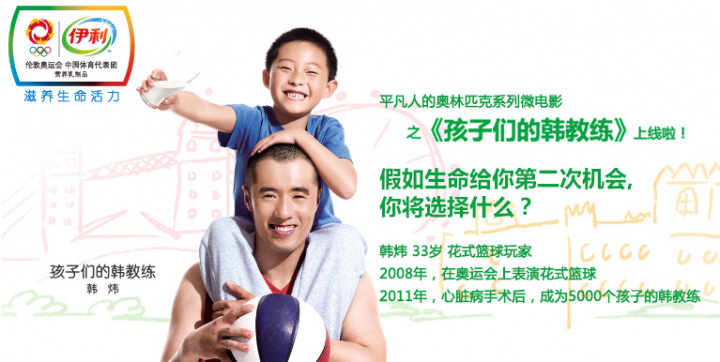
While YIli has high brand awareness in China, its brand equity faces challenges. For Chinese consumers, Yili may just be one of the big Chinese dairy brands; the idea of what Yili stands for hasn’t been effectively conveyed to Chinese customers. Yili is trying to strengthen their brand equity by announcing their ties to the Games loud and clear. Through this, Yili wishes to establish the brand as “the best” dairy product in China in terms of quality and enhance their brand esteem.
However the claims this company is making are not enough to convince the concerned Chinese population given the country’s unraveling milk scandal. Yili opened their factory doors in order for people to visit the factory and confirm that the purification procedures were safe.
Yili is not alone in terms of clearly announcing the ties to Olympics in every means possible. Ice Dew is a sub brand of Coca-Cola that is not yet well recognized within the Chinese market. In order to increase brand awareness and stand out from competition, the brand especially put great emphasis on the words “Official Portable Water of the Olympic Games” at the end of their commercial in order to captivate people’s attention.
Procter & Gamble
P&G is the sponsor of team USA and one of the “Worldwide Olympic Partners” of London 2012. All P&G brands are allowed to use the Olympic Games logo in their branding campaigns. P&G has made the Olympics campaign a tribute to the millions of moms around the world. The P&G Team USA Youth Sports Fund has been launched as part of the global “Thank you, Mom” campaign. The fund will help moms raise happy, healthy children by providing them with larger access to youth sports. P&G will donate a dollar to every ‘like’ on their Facebook campaign page.
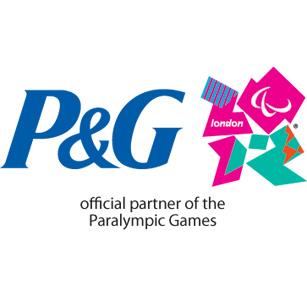
Different from Yili’s branding strategies, P&G uses their sponsorship as a way to support to their global campaign. With the tagline of “P&G, proud sponsor of moms”, the brand shifts the focus from the international sports event to ‘moms’. This strategic move not only links ‘moms’ to the Olympic Games, but also showcases the brand’s sincerity. Established almost 200 years ago in 1837, P&G has captured a stable market share. As a leadership brand, P&G is now engaging itself in corporate social responsibility practices to further reinforce brand equity and boost brand reputation.
Similar cases can be found amongst other program members. Leadership brands usually integrate the sponsorship message with their own brand messages. Let’s take a look at what they say.
Move to the beat, in London 2012. (Coca-Cola)
More people go with Visa. (Visa)
London 2012. Fuelling the Future. (BP)
The Olympic Games provide an exceptional platform for brands to disseminate a positive message globally. An official sponsor of the Olympics aligns itself with core Olympic values, such as perseverance and excellence. Brands utilize diverse strategies to leverage this opportunity. Chinese brands often opt for straightforward communication, loudly proclaiming their sponsorship to establish a strong association with the Olympics. In contrast, mature global brands view the sponsorship as a strategic push for their branding initiatives. As the upcoming Olympic Games unfold, these brands are compelled to showcase the pinnacle of their products, living up to the expectations associated with their esteemed names. Explore the nuanced branding strategies employed by brands during this prestigious event.
A Labbrand Group Company © 2005-2024 Labbrand All rights reserved
沪ICP备17001253号-3To improve your experience, we use cookies to provide social media features, offer you content that targets your particular interests, and analyse the performance of our advertising campaigns. By clicking on “Accept” you consent to all cookies. You also have the option to click “Reject” to limit the use of certain types of cookies. Please be aware that rejecting cookies may affect your website browsing experience and limit the use of some personalised features.